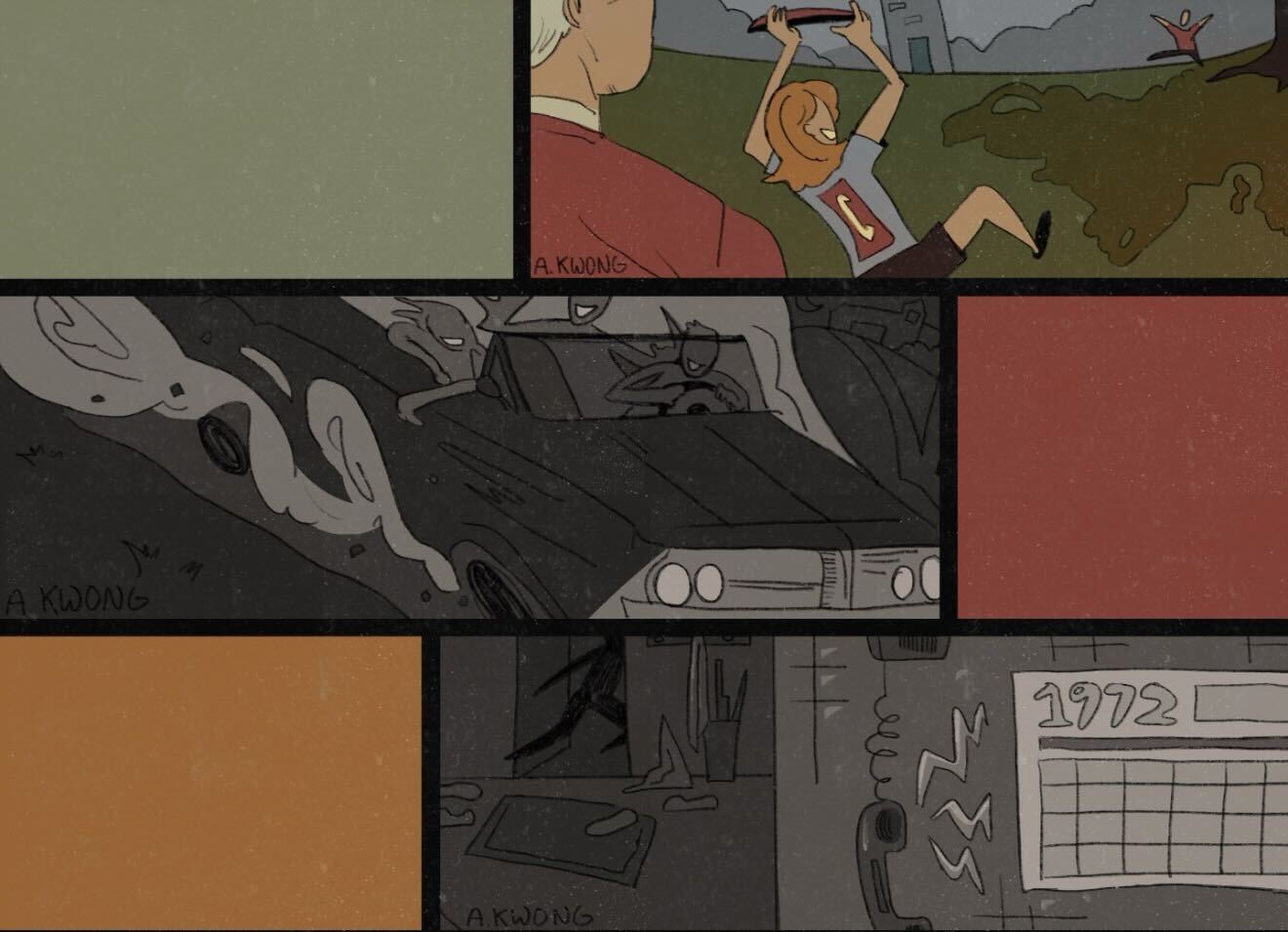It's always nice for me to come back…. My memories are strong about this place; important. And the two times I have been here for sustained periods have always been extraordinary. — Toni Morrison, 2009, per the Cornell Chronicle
It’s afternoon on the Arts Quad. A white-haired grandfather watches his son and his son’s little boy and girl toss a frisbee between the shade of a red oak and a sunny patch of green grass. The man has just turned seventy five, recently resigned from his post as the mayor of his small Upstate New York town, and by this point in life has officially decided himself wise. But note that there is a difference between truth and wisdom, and that as you age, you become wiser but not at all more truthful—the opposite, in fact, when it comes to the stories you tell about the past.
“As time goes on you get bigger and stronger, the women get better and prettier,” goes Randy Schayler Sr., who was once a Cornell engineer, offensive lineman and fraternity brother. Wisdom, on the other hand, the grandfather describes as “the ability to determine what’s important and what’s not important.” In telling a story, by pulling a memory from the past, he determines what’s important for the present. Not the details, nor the embellishments, but the story. It’s the act of remembrance, and the way Randy explains it, with those deeply pocketed eyes and clean white bristles for hair, it’s sacred.
What’s brought you back? Why do you return? These questions stem from the present but exist in a past. You were once here, some time ago. Why have you come again? But so is, by definition, a (re)visit to one’s alma mater.
“Can’t do a lot through memories,” Randy sighs. He says he’s not here to return to the past, but rather to be reminded of the things he forgot. “You don’t relive the moments as much as you think of more,” he says.
%20copy.png)
The automobile rolls down the pedestrian paths, spills out onto University Avenue, and Randy will not remember exactly why he was driving his fraternity brother’s car that night, but that he drove it, and that he and his friends did that. He tries to recall a reason for it, but faintly, like a sigh, he says, “I can’t remember.”
%20copy%202.png)
In the night, the boy rushes thirty miles south in the dark, reaches the hospital, and that will be the end.
%20copy%203.png)
Solemly, Randy thinks to himself that the call couldn’t have come from a cellphone—they didn’t have those back then. But he cannot recall: where was the landline? What color was the phone?
“It seems to me,” he says, “that apartment had a phone hanging on the wall in the kitchen.” But in complete and exact truth, he does not know.
Just that night, he lost his roommate. And now every time he returns to Ithaca and drives past his old home at 206 Prospect Ave and turns onto Aurora: “boom.” It’s like he fast-forwards through his memories, and only some things, perhaps the most important, impactful, wisest things stick for more than a millisecond. About that night, Randy says, “I blocked a lot of that stuff out.”
“But,” he recalls, a grin re-appearing, “I can tell you that Pontiac was maroon.”
